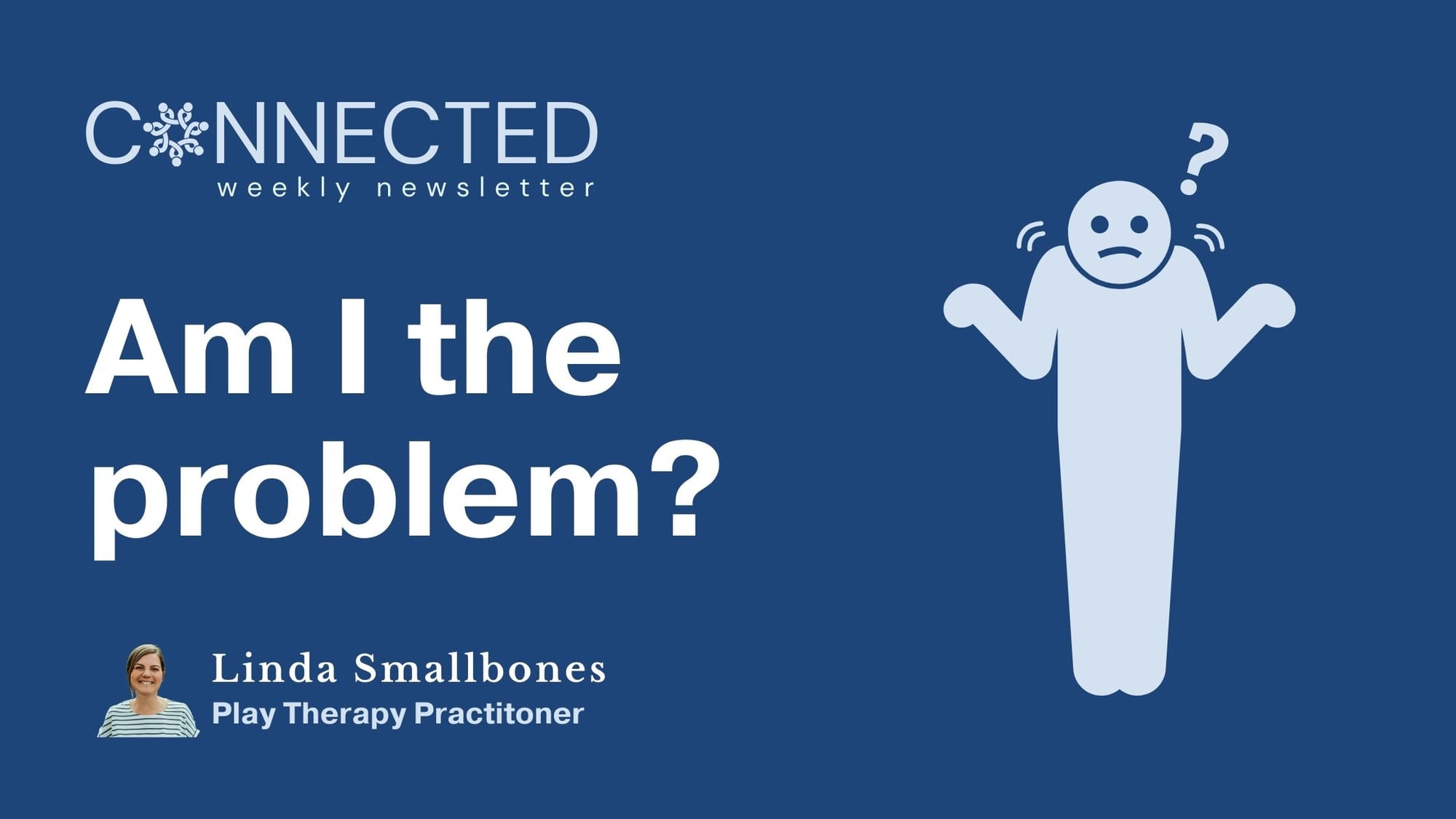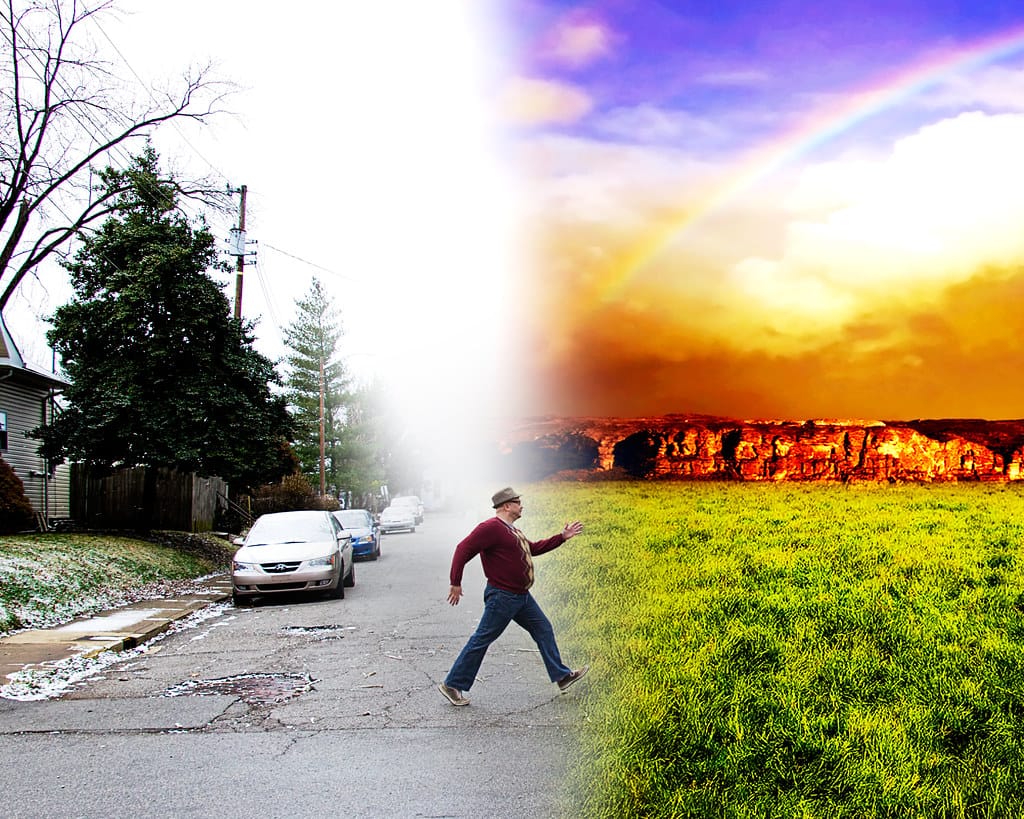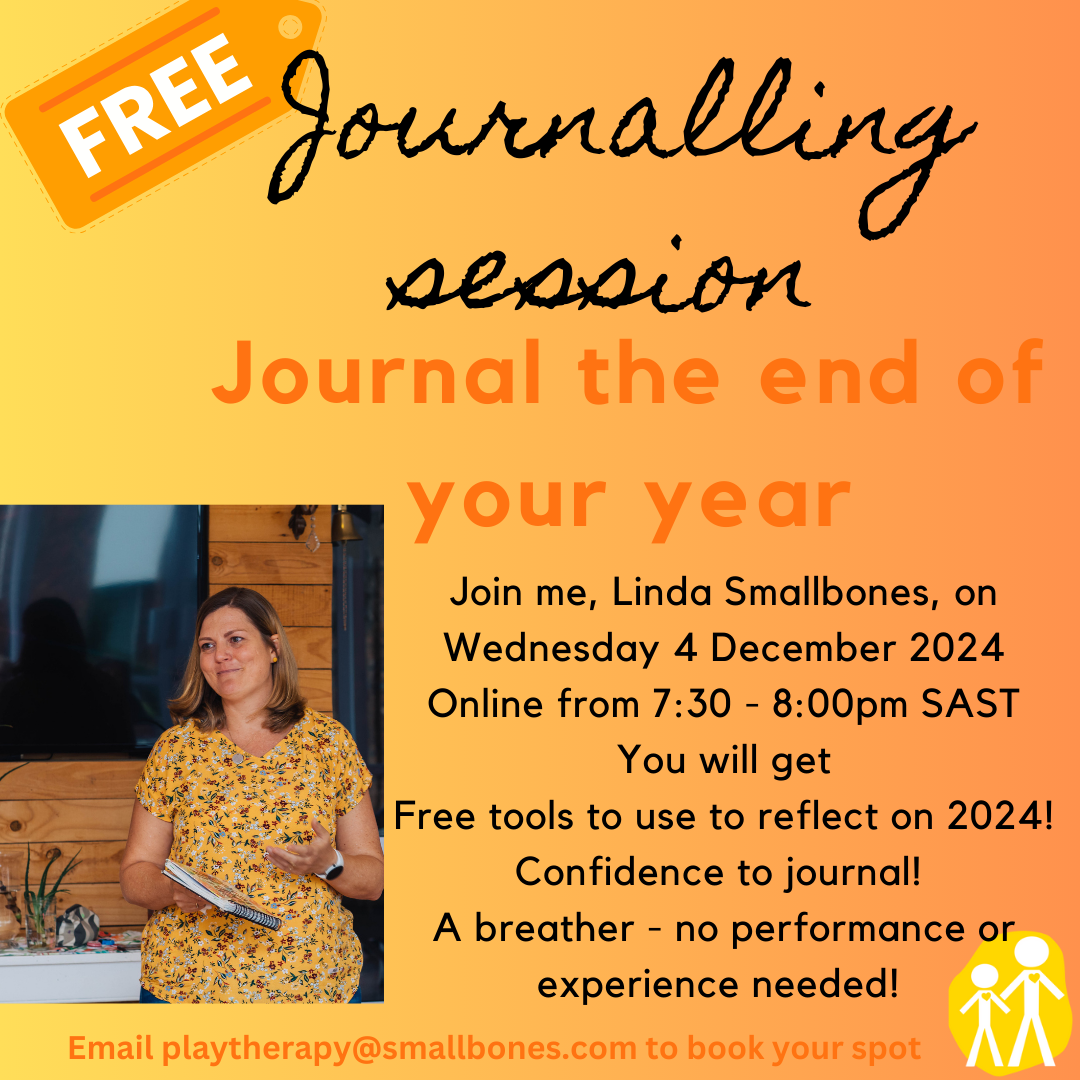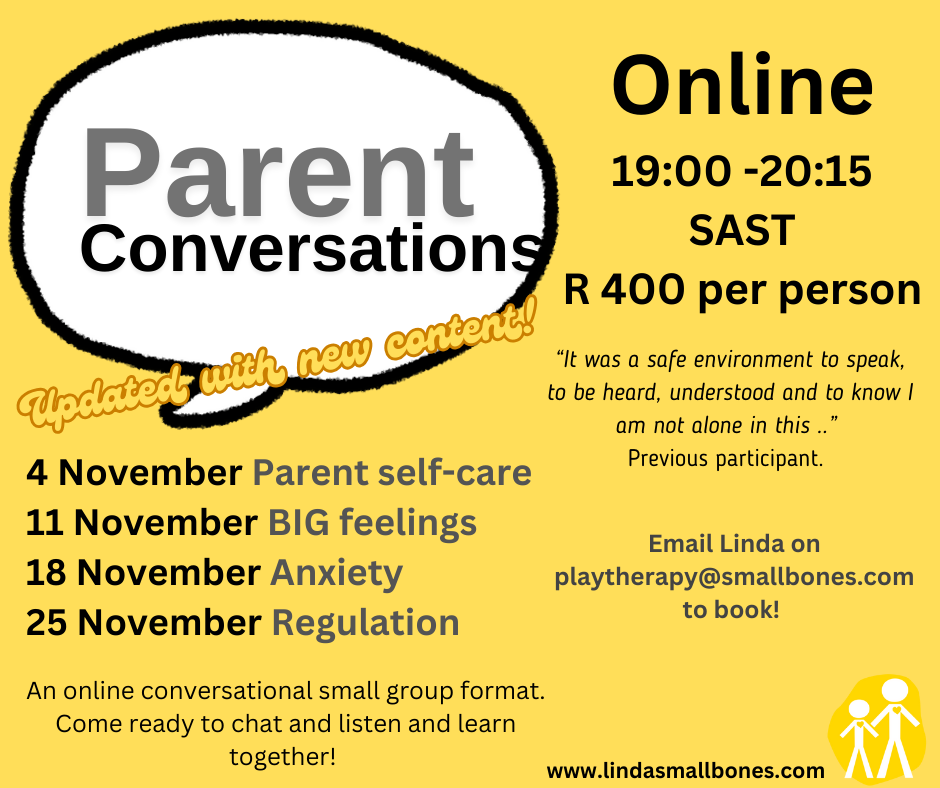Am I the problem?
Explore how self-awareness, compassion, and perspective can help parents support their children’s growth and healing without guilt or judgment.

I don’t take lightly the fact that dozens of parents each year take the step to make an appointment with me and talk about the need for play therapy for their child.
For some, this can be an incredibly vulnerable space. Perhaps because of the turmoil they’re going through. Perhaps because it’s a shock that play therapy is even suggested for their child in the first place. Perhaps because their story is hard to share. Perhaps because they carry huge amounts of guilt as a parent.
And the questions at the back of a parent’s mind may be:
“Will she judge me for saying this? Will she blame me? Am I the problem?” They may even ask themselves: “What have I done wrong?”
I don’t judge parents, because I am one. I am a very imperfect one.
In working with parents, I try to be the person I wish I had beside me in my most difficult parenting moments when our kids were little.
I’m celebrating where we are at in the parent-child dynamics in our house right now, but as we all grow and develop, anything could happen, and we as parents may be the ones needing professional support. And we will seek it if we need it, as we have before. But the key is finding the right person for the time you’re going through—the person you can share the things that you need to share, and who can hopefully help you see a different perspective.
As the parent, am I the problem?
This question tries to apportion blame. Blame brings in guilt and shame, which can actually shut down communication and emotional availability. Guilt takes up so much emotional energy and diminishes our availability to be there for our children in meaningful ways.
Children are mostly referred for play therapy when their behavior is challenging or concerning in some way. Behavior is data.
I believe a key part of the therapeutic process is for parents to gain a perspective on how they either help or hinder their child towards healing.

It doesn’t matter who we are or what we know; we all have blind spots, and we all bring a dynamic that is unique to us and is influenced by our stressors. With the best intentions, we can’t always see what we are doing—or not doing—that is in some way negatively influencing our child.
A Story
(Not a true story, but based on true-to-life events in a collection of cases.)
A family experiences a traumatic event when their youngest child has a near-drowning experience. The child is saved and completely fine, and there is massive relief. But there is a residue of fear left in the older child who witnessed this. It was absolutely overwhelming, as can be expected, and her anxiety escalates over time.
The parents have told and retold the story to family and friends over the days and weeks after the event, often in the presence of their children. The older child is affected the most by this. Inadvertently, they repeatedly expose the child to the trauma in a way that adds to her overwhelm, helplessness, and fear. She is flooded with fear as if the event were happening again and again as she hears it retold.
Realizing this, I was able to work with the parents and inform them of the way this was impacting the child. Are these parents a “problem”? No, absolutely not. Talking through a trauma such as this is often a way adults cope and make meaning of it. It made sense that they talked about the experience from their perspective. And they can do so in their own time, without repeatedly exposing the children.
The parents in this example took on the information I gave them and stopped talking about the event in front of the children. This, in turn, influenced the healing journey for the older child and enabled the anxiety to dissipate. They gained a new perspective. They didn’t need to apportion blame or feel guilty. They learned new information, acted accordingly, and saw further healing for their child.
All of this to say…
As parents, we are each on our own journey. Could we be better parents? Always (Pick me!!) Could we benefit from some intentional personal growth, increased self-awareness, and self-love? Definitely (Please pick me!!) We don’t change or thrive in atmospheres of judgment and guilt. (Neither do our children.) We may just thrive in an atmosphere of acceptance, safety, and compassion.
I have some things for you!
I love supporting parents because I am one. I love what I learn when I talk to other parents. As we start to wind down this year, I have been thinking about ways to make space for you. There are three!
Firstly, a FREE journaling session on 4 December. Journaling is a fabulous way to reflect on being a parent and to care for yourself. I wrote about it here and here.

The second offering I have is Parent Conversations. I have previously written about it here.
Parent Conversations is what the name implies—a safe space to talk about pertinent parenting topics. I have run this several times in person before, and this time it will be going online! The process is newly updated and upgraded. I am excited to share some new learning I have had as a professional and parent over this past year. These conversations happen over four weeks and each week has a particular focus.

Lastly, Parenting for Connection, which you can find out more about HERE.
What’s the difference between Parent Conversations and Parenting for Connection?
Parenting for Connection is now an 8-week journey, which goes deeper and further in supporting you to cultivate deeper connection with your child. Parenting for Connection can be done one-on-one, in a parent couple, or in groups.